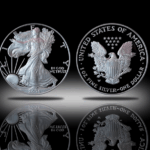We live in the age of experts. In many cases, unless the government licenses you to have an opinion worth sharing, you’d better keep your thoughts to yourself. Or maybe a license need not be involved. Perhaps it’s just the party line that you can advocate. Anything else is misinformation and should be censored. So says Hillary Clinton; so say many in the ruling class.
The thinking that produces this mindset is that truth doesn’t matter. Power matters. Anyone can discover truth. Only a few can attain ruling power, and they can share it as selectively as they please.
Solomon, who attained extremely high levels of both truth and power, made an observation: “Now there lived in [a] city a man poor but wise, and he saved the city by his wisdom. But nobody remembered that poor man. So I said, ‘Wisdom is better than strength.’ But the poor man’s wisdom is despised, and his words are no longer heeded.”
That’s unfortunately where we are today. If you’re not a member of the power elite, you don’t have an opinion that matters. And if you are a member of the power elite and don’t toe the party line, you don’t have an opinion that matters.
Millions of Americans who questioned the Covid narrative discovered the truth of the former point. Dissenting doctors then, and dissenting Democrats such as RFK Jr., Tulsi Gabbard, and Elon Musk since, have found out the latter. Truth doesn’t matter. Power is what matters.
Many Americans can still remember a time when wisdom was common in our country. A person might not be rich (or they might be, as the book The Millionaire Next Door made clear), but they were very good at what they did and they did it well and generously. A poor man who saved a city by his wisdom would be valued and honored.
Wise Americans can still be found, but they’re not protected, valued, or encouraged. They’re regulated, taxed, sued, threatened, arrested, jailed, and disparaged. This drives wisdom underground. Wisdom still exists, but its influence and effects are reduced.
The McAlvany companies are still vocal about wise policy and practice, but there could come a time when wise words are strictly forbidden. It happened in the Soviet Union and it’s current practice in China and North Korea.
If that happens, you’ll be glad if you’ve exercised your wisdom by getting some wise money. There can be several forms of wise money, but the wisest of the wise is money that depends for its value only upon itself. No polity, promise, person, or policy confers its value or takes it away. If you’re not sure what that wise money is, keep on reading.
Key Takeaways:
- It’s all about control
- History rhymes—even when you don’t want it to
- When paper disappoints, gold shines
- What are gold’s politics?
The McAlvany Weekly Commentary: Censorship: A Means To Control
In the wake of another successful client conference, David and Kevin touch on what it means to engage with the McAlvany Wealth Management team. The process is distinctive ideologically and practically, and the team is both cohesive and high-functioning—with a constant eye on risk management. The hosts then turn to developments in China regarding monetary and social policy. That brings up a brief comparison with America, given that Hillary Clinton has called for the abrogation of First Amendment rights here lest she and her ilk lose control. Likewise, in the name of control, China is collecting passports from its citizens so it can determine when and where they can travel. Back to America, efforts to control the narrative, the science, and the populace are retarding progress. David briefly discusses Karl Popper and his emphasis on testing theories to find if they’re true or not. “The freedom to get things wrong is essential to ultimately getting things right,” notes David, but that means we must be able to test and distinguish between validity and invalidity, truth and falsehood, right and wrong—not assert things and forbid questioning them. The hosts also discuss events in the Middle East and Israel’s moving out from under the US’s thumb. Then they wrap up with a discussion of US economic policy and the implications of America’s enormous debt.
Credit Bubble Bulletin: 45 and Counting
“For those wondering why I go on and on over the Fed slashing rates despite such loose conditions and Bubble excess, I’ve seen this movie before.” This is one of the many benefits you can get from the writings of someone who has extensively studied financial bubbles for well over three decades. Doug proceeds to give historical context to his observations on the Fed’s folly. Though the high muckamucks of money might act as if they’re in uncharted territory with plenty of room for maneuver and innovation, Doug shows that it’s all been done before—and the consequences aren’t all that one might desire. He compares his March 21, 2005 analysis with what is happening today. The similarities are eerie. If Fed and government memory are seemingly full of seigniorage moments these days, Doug’s reliance on reality rather than power works just fine, thank you. And he shows that politically driven government prerogatives are no substitute for sound, reality-based policy.
Hard Asset Insights: All Roads Lead to Gold
Morgan gives us a history lesson replete with comments by high-level thinkers and doers in the financial realm on the train wreck the US economy is headed for. It’s a history lesson because these commentators saw the wreck coming over ten years ago—some much earlier than that. And the US has responded to the irresponsible policy warned about by these folks by doubling down on it. Morgan describes the consequent dilemma the Fed is in, and what the possibilities are going forward. He shows that gold is going up in price because no matter which way the Fed turns, the consequences will best be weathered by those holding gold. Much of the reason for gold’s attractiveness is the decline in confidence in Treasury paper. The US’s poor financial condition, coupled with the weaponization of the dollar (made apparent by the freezing of Russian assets when that country invaded Ukraine), has caused this decline in confidence. Gold has been the worldwide beneficiary, and is now early in the process of replacing the petrodollar as the world’s reserve currency. However, in order for gold to fulfill this role, the price of gold must go up much further.
Golden Rule Radio: Election Market Expectations
Miles’ opening review of the charts has all four precious metals declining this week. Gold’s support levels, maintains Miles, are below where most people think they are—which is a reflection of how high gold has gone in recent weeks. The hosts then cover the metals in light of the upcoming election, but Tory is careful to point out that every election is unique. The situation and candidates are always different. That said, Tory presents some fascinating trends that gold prices follow depending on whether a Democrat or Republican wins the White House. He covers the immediate reaction, the short-term reaction, and the medium-term reaction. You’ll likely be surprised at what he found. The longer-term results are also surprising, but not in the way you might expect. And they’re deeply affected by the legislative branch makeup as well. Either party faces a horrible fiscal situation if elected, so the obstacles to economic health are great. And history advises that in the face of weak fiscal policy, the price of gold will rise significantly. Global de-dollarization is also a factor, and indeed a bigger one than in recent years. Tory then points out that, quite apart from price, demand for gold varies greatly depending on whether a Democrat or Republican wins the White House.















